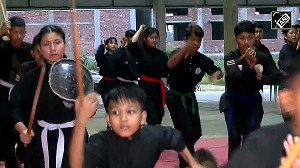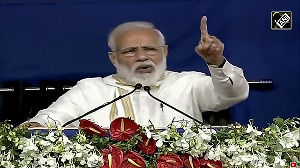Leading Toyota authorities Jeffrey Liker and David Meier give you the keps to growing top performers from within through a detailed preocess of preparation, traning, and follow-up. Here are Toyota's secrets to building an exceptional workforce . . .
No one seems to be sure of the exact course of events that led to the development of the Toyota Production System (TPD) as it is today, but we are sure that without highly capable people the current system would quickly disintegrate.
We know that in the early development of TPD, its chief architect, Taiichi Ohno, wanted to press forward with some of this ideas and discovered that people were not ready.
When he went to work to achieve single-piece flow in a machine shop and he needed multiskilled workers, he encountered resistance and learned that he had to be patient and to think about developing people who would be able to support the methods. He could not simply order people to flow the rules (although he was known as being very forceful when necessary).
He needed people with thinking capability because of the challenges resented by the application of his new ideas. In fact, the real purpose of creating flow was to bring problems to the surface, which would force people to think about solving the problems and to help them to develop their abilities.
A select few front-office experts could not possibly deal with all the situations that would surely arise as Ono pressurized the system, thereby forcing failures. He needed capable masses.
The development of capable masses requires a clear plan. It requires time and patience. Above all its takes persistence and the willingness to stick with it and to deal with the individual peculiarities and challenges of each person.
When Taiichi Ohno discovered the importance of highly capable people, he sought a method of teaching that would support his needs. He believed he had found such a tool in the Job Instruction (JI) Method taught by the American occupation forces after World War II.
It has been the primary teaching tool for all of Toyota since 1950s. Today the capabilities of Toyota employees are a hallmark of the company. We often talk to managers of other companies who view the capability of Toyota employees to be some sort of anomaly or option that is open only to Toyota.
The truth is that Toyota does like to start with good people who posses the capability to become exceptional employees. The people whom Toyota selects must have the capacity and desire to learn. Those are the only absolutes. In fact if one were to look closely at Toyota employees, one would find a broad spectrum of humanity similar to that in any other company -- with all the beauty and blemishes found anywhere.
Toyota employees bring to bear issues similar to those of other companies, such as attendance problems, resistance to change, lack of motivation, and even reluctance to accept the philosophy of TPS.
What allows Toyota to be successful in spite of these challenges is the efforts and interest in drawing out the best of the employee's abilities and initiating possible solutions (rather than a shrug and the 'What are you going to do?' attitude we hear from other companies). Perhaps Toyota has recognized the reality of human behavior and limitations, and it has created systems that minimize those limitations or take advantage of human desire.
People are carefully selected to join Toyota based on their potential and a judgment that there is a fit with the job and with Toyota's culture. They must have some general problem-solving capability and be willing to work as part of a team.
People develop specific capabilities after they are hired at Toyota. It is Toyota's expectation that it will mold the individual to fit the needs of the organization as well as support the interests of the individual. It is this mutuality of purpose that leads to more satisfied employees who are able to perform in exceptional ways.
One must not assume that Toyota is completely altruistic in its efforts to develop employees and to provide engaging activities. The objective is to provide benefits for the employees, which in turn also returns benefits to the company.
Toyota often creates situations in which there is an equal balance between reward and punishment in order to encourage the desired behavior. For example, given the critical nature of attendance on the performance of the system, a high emphasis is placed on having great attendance (perfect attendance is preferred).
On the reward side, Toyota Motor Manufacturing Kentucky (TMMK) has an annual award ceremony for all employees who achieved perfect attendance in the previous year (over 60 percent in 2005).
The award ceremony includes entertainment from some top acts in the country including jay Leno, Bill Cosby, and Brooks and Dunn. In addition, each person has his or her name placed into a hat, and 14 winners are drawn, each receiving a brand new car (a mix of Camrys and Avalonds).
To sweeten the pot, each team member with consecutive years of perfect attendance will have his or her name added to the hat an additional time for each year of consecutive perfect attendance.
In 2006 there were more than 400 employees who had achieved 15 consecutive years of perfect attendance (the length of the program)!
On the punishment side, repeated unexcused absences are one of the easiest ways to lose a job at TMMK. The policy is fairly strict and is weighted heavily on attendance history and also the circumstances.
Consideration is given for good reasons, but repeated absences for poor reasons are sure to lead to discipline. A flat tire is not considered a 'good' reason, for example, but the effort a team member makes to reduce the time loss is in his or her favor.
If a team member has a flat tire and misses the entire day, it is not viewed favorably. And apart from the fear of being fired, sitting home while all your team associates are at the big bas hoping to win a car is its own punishment.
Reprinted by permission of Tata McGraw-Hill Publishing Company Limited.Excerpted from:
Toyota talent: Developing Your People The Toyota Way
By Jeffrey K Liker and David P Meier
Price: Rs 350.
Jeffrey K Liker is the bestselling author of The Toyota Way, while David P Meier is the co-author of The Toyota Way Fieldbook.
Copyright (C) 2007 by McGraw-Hill. All rights reserved.






 © 2025
© 2025